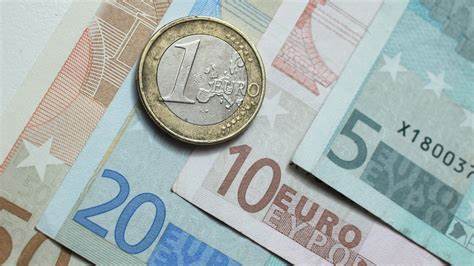This is Steve Ember with the VOA Special English program, IN THE NEWS.
On January first, many people in Europe will stop using the money they have known for a lifetime. More than three-hundred million Europeans will start using the new single European money, the euro. It will become the legal form of money in twelve European Union countries.
Fifteen nations belong to the E-U. Twelve countries will use new euro paper money and coins starting next month. They are Austria, Belgium, Finland, France, Germany, Greece, Ireland, Italy, Luxembourg, the Netherlands, Portugal and Spain. Three E-U members decided not to join the single money system at this time. They are Britain, Denmark and Sweden.
E-U leaders agreed on the use of the single money in the Maastricht Treaty of Nineteen-Ninety-One. They created the euro so that business deals among their nations would be easier and less costly. The euro is not expected to change greatly in value. This will keep interest rates low.
European leaders also believe the euro will unite Europe politically by forcing the nations to cooperate. For example, countries will have a reason to help another country if it becomes weak economically. If no help is offered, the value of their shared money could become weak.
The European Central Bank was established in Nineteen-Ninety-Eight. Two major goals of the Central Bank are to keep the euro strong and to control inflation. The Bank is responsible for supervising the development and public acceptance of the euro.
Three years ago, eleven E-U nations started using the euro for stock market trading, banking and business deals. However, most Europeans continued to use their national money. Since then, money production centers have been busy producing euro paper money and coins. There will be seven different euro banknotes and eight coins.
Some post offices, banks, and stores are now offering euro coin collections to the public. These coin collections are designed to show Europeans what the new money will look like.
Both the euro and old national money will be accepted in most countries for up to two months. European officials expect that most business activity will be completed in euros by the middle of January. The old money will stop being accepted at the end of February.
Europeans have talked about political and economic unity for fifty years. Until now, most of the important developments have been technical.
Some observers say the launch of the euro will make a real difference in the lives of Europeans. They say Europeans now will start to identify more with the E-U in ways they did not in the past. They say the euro will be a real, physical sign of European union.
This VOA Special English program, IN THE NEWS, was written by George Grow. This is Steve Ember.
